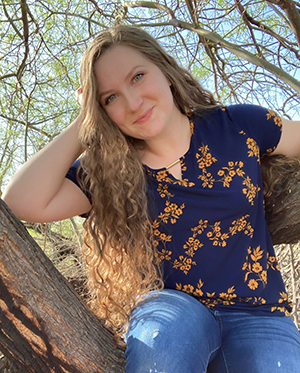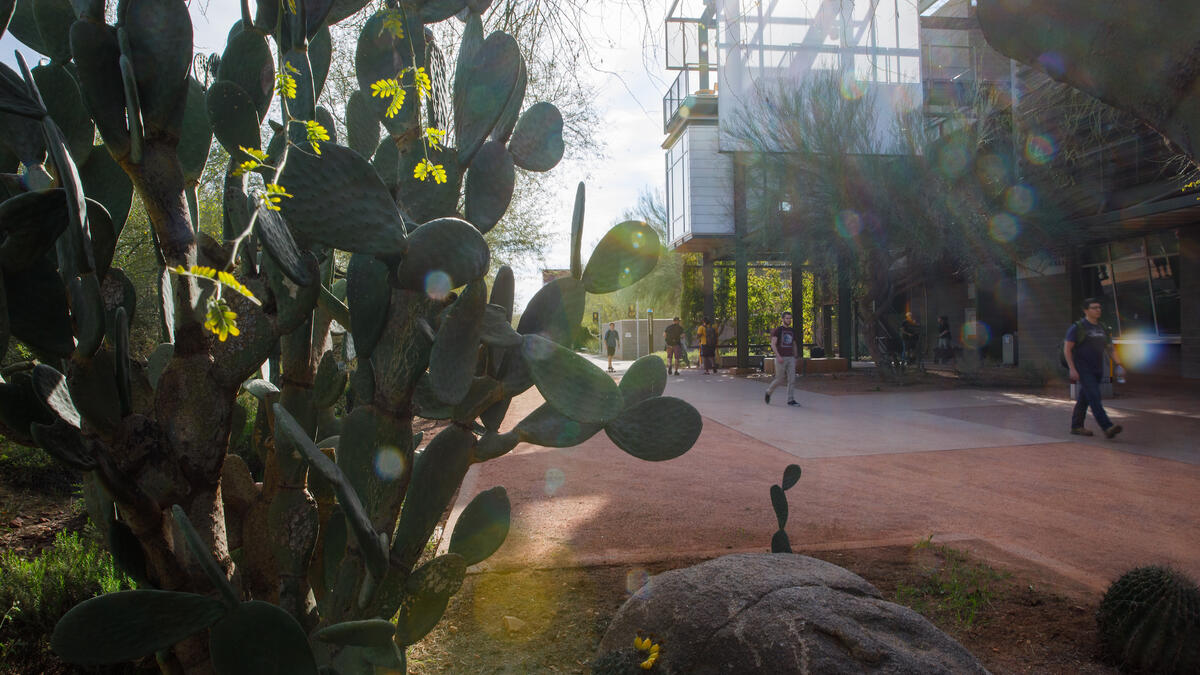Editor's note: This story is part of a series of profiles of notable spring 2021 graduates.
Hannah Cherry grew up in an idyllic small town of about 4,000 people in eastern Washington called Deer Park. She was contract schooled, meaning she went to school, picked up her work, took it home, completed it and then returned it to school.
When it came time to go to college, Arizona State University seemed like a natural fit. Cherry had family in town, and her mother is an alumna. What was not a natural fit was a campus where there are as many people in the student union as there are in your entire home town.

Hannah Cherry.
“It was incredibly difficult, honestly,” Cherry said. “My first semester it was kind of a nightmare, but I adapted after that and kind of learned the ropes and got a lot better.”
She found her niche at the Polytechnic campus, the perfect choice for students who want a world-class education with a smaller campus feel, and the environmental and resource management program. A Barrett, The Honors College student and a teaching assistant for the department chair, Cherry will continue her education in the 4+1 program.
Question: What was your “aha” moment when you realized you wanted to study the field you majored in?
Answer: I just was looking for a career path where I wanted a little bit of everything. I was really interested in humanities a little bit and trying to help people out, but I also have always loved nature and just being outside all the time, but I kinda liked math and problem solving. So I was just looking for majors and colleges constantly. And then I found the environmental resource management program and it just had a little bit of everything I was looking for and I was like, sign me up. … If at all possible I want to go into contamination cleanup.
Q: What’s something you learned while at ASU — in the classroom or otherwise — that surprised you or changed your perspective?
A: I've always been really focused on my academics, to be honest. So learning how to take a little time for my own personal life was actually a big thing I learned in college. So I had never really focused on that before.
Q: Why did you choose ASU?
A: I have family down here, and my mom went to ASU, and so I was just a little bit interested in it in general. And then I was just looking at several different ones all over and then I saw the (ERM) program when I saw that one. That's how I decided.
Q: Which professor taught you the most important lesson while at ASU?
A: Probably Dr. Hristovski. He taught me how to just look at any problem and look at what's actually being asked and learn how to use random, different tools and anywhere you can to solve it.
Q: What’s the best piece of advice you’d give to those still in school?
A: Tell them, kind of, just to hang in there: to try their best and do everything they can so that when they leave, it may have been difficult, but they know that they've put their best foot forward and they can say they did their best in everything.
Q: What was your favorite spot on campus, whether for studying, meeting friends or just thinking about life?
A: There's a lot, but I think the main one would have to be on the Polytechnic campus where they have — I really don't know what you call it, but it's like a structure where it has an arch, but it's square and then they have vines hanging all over it. And it's between Wanner and Sutton Hall. It's really long. And it's just so pretty when the flowers are blooming down. It's really cool.
Q: If someone gave you $40 million to solve one problem on our planet, what would you tackle?
A: It definitely would be environmental. It would probably be either with agriculture or biofuels, probably switch from so many fossil fuels and like fracking and things like that and finding some really cool new alternative. Or with agriculture — finding a new way to use less water. Just more sustainability.
Top image: Photo by FJ Gaylor.
More Science and technology

Breakthrough copper alloy achieves unprecedented high-temperature performance
A team of researchers from Arizona State University, the U.S. Army Research Laboratory, Lehigh University and Louisiana State University has developed a groundbreaking high-temperature copper alloy…

4 ASU researchers named senior members of the National Academy of Inventors
The National Academy of Inventors recently named four Arizona State University researchers as senior members to the prestigious organization.Professor Qiang Chen and associate professors Matthew…

Transforming Arizona’s highways for a smoother drive
Imagine you’re driving down a smooth stretch of road. Your tires have firm traction. There are no potholes you need to swerve to avoid. Your suspension feels responsive. You’re relaxed and focused on…


